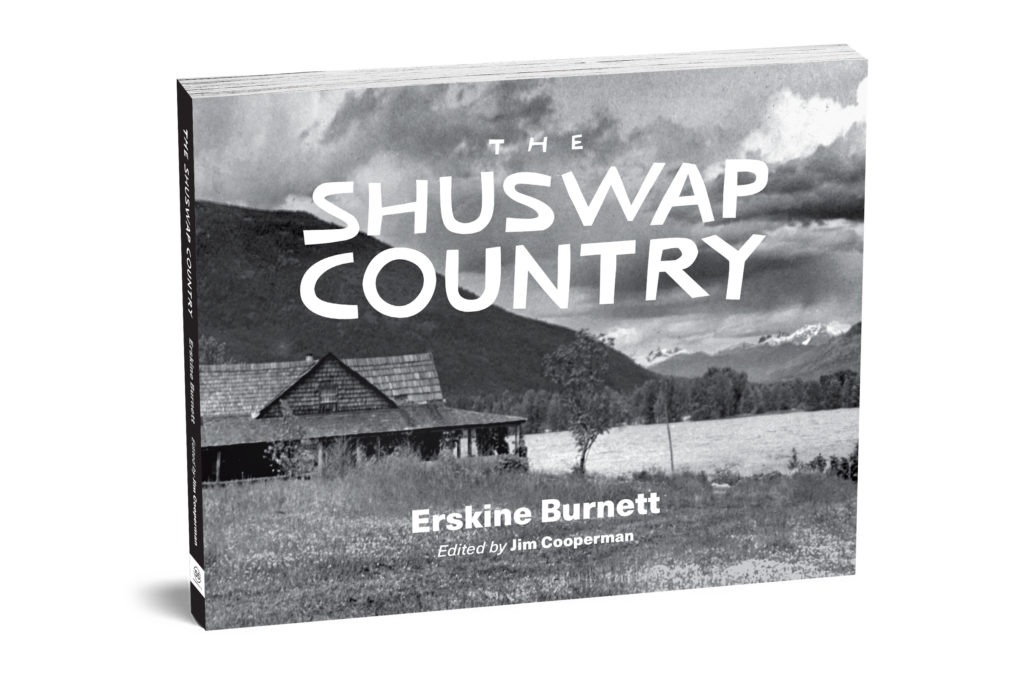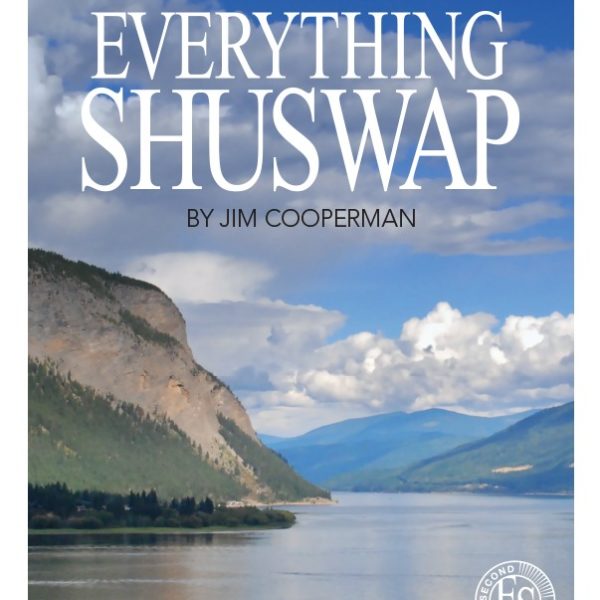A transplanted Scotsman, Erskine was smitten by the Shuswap where he tended a fruit orchard and with his wife Alice, raised a family. Over the decades he explored every nook and cranny, with the keen eye of a newcomer. He motored, camped and trekked, following every conceivable route in the 1930s and 1940s.
The Shuswap Country is his travelogue of observations, characters, anecdotes, puns, tall tales with a smattering of corny humour. It’s also bursting with crisp, clear photographs snapped by the author, making this a priceless document of pioneers, community halls, “auto camps,” train stations, sawmills, Main streets and pristine mountain meadows. Some of those meadows are now preserved inside provincial park boundaries like the Monashee.
Erskine had the heart of a poet. He was captured by the shifting quality of light as it tracked across the landscape, or the “sombre green” of fir trees contrasted against the “bright green of birch.” A storm moving down Adams Lake, “has its own moods like temperamental humans.” He revels in flora and fauna – lupines, swallowtail butterflies, or a porcupine that made the mistake of munching into a packsack.
His hand-drawn map at the beginning of the book is handy to help understand where we’re travelling next over these twelve journeys. Whether it’s high in the mountains to chat up sheep herders, or down into lush valleys with sweet alfalfa and Herefords dotting the countryside. A gregarious traveller, Erskine was usually certain to make a new friend, or break bread with an old one. He travelled on a road network that was still under development. “The best thing that can be said for the roads at present is there is room for improvement,” he sputters while motoring in the Eagle Valley near Malakwa.
He loved to fish the region’s lakes and streams, with dreams of landing a trout for dinner. “A Sugar Lake trout cooked alfresco over a campfire is something to be remembered.” He seems to know every fishing lodge intimately, and where to buy worms at 10 cents a dozen. One is startled to read that canned “red” salmon was so plentiful that local people grew tired of it. Today, as we watch sockeye stocks crash it’s shocking to think that a bounty that has sustained Indigenous peoples for thousands of years can no longer be counted on. A devastation that has occurred within two or three lifetimes.
The Shuswap Country might hook you into exploring this underappreciated region, it’s much more than a rest stop on the way to elsewhere. There is an honouring and celebration of the rural existence that is now mostly a memory. We should all visit and take Erskine’s scrapbook along to help see what’s been lost, and what may still be found.
$5 for shipping and banking fees.

